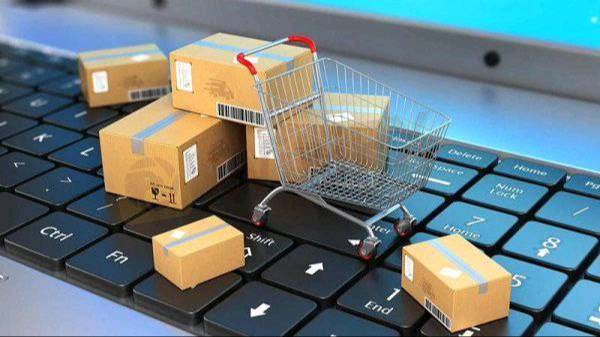
2025-01-18 00:01
NgànhHow Global Platforms Address African Shipping .
#firstdealofthenewyearchewbacca
Key
Global platforms are addressing African shipping challenges by introducing innovative solutions in logistics and last-mile delivery. These efforts focus on overcoming infrastructural, regulatory, and operational obstacles unique to the continent. Here's how they are tackling these challenges:
Key Shipping Challenges in Africa
Infrastructure Gaps: Limited road networks, underdeveloped ports, and inadequate rail systems.
High Shipping Costs: Due to fragmented supply chains and inefficient processes.
Regulatory Barriers: Complex customs procedures and inconsistent regulations.
Last-Mile Delivery Issues: Poor addressing systems and difficulty accessing remote areas.
Innovations in Logistics
Technology Integration:
Real-Time Tracking: GPS and IoT-enabled devices allow real-time monitoring of shipments, improving transparency and efficiency.
Digital Freight Marketplaces: Platforms like Kobo360 and Lori Systems connect shippers with truckers to optimize cargo transportation.
Route Optimization:
AI and machine learning are used to identify the most efficient delivery routes, reducing transit times and fuel costs.
Blockchain for Customs:
Blockchain technology simplifies cross-border trade by streamlining customs documentation and reducing delays.
Localized Warehousing:
Companies like Amazon and DHL are investing in local fulfillment centers to shorten delivery times and reduce logistics costs.
Last-Mile Delivery Innovations
Use of Drones:
Companies like Zipline deliver medical supplies to remote areas using drones, bypassing road infrastructure challenges.
Crowdsourced Delivery:
Platforms like Glovo and Jumia leverage local couriers for faster and more cost-effective last-mile delivery.
Mobile Addressing Systems:
Solutions like what3words provide precise geolocation-based addresses for areas lacking formal addressing systems.
E-Commerce-Specific Solutions:
Platforms like Jumia and Konga use local distribution networks and partnerships to enhance delivery reliability.
Micro-Hubs:
Establishing micro-fulfillment centers in urban and rural areas to act as pickup or redistribution points for deliveries.
Global Collaboration and Investments
Partnerships:
Collaborations between global and local players (e.g., DHL with African logistics startups) to leverage regional expertise.
Infrastructure Projects:
Investment in ports, roads, and railways by global organizations (e.g., China's Belt and Road Initiative in Africa).
Regulatory Support:
Engaging with African governments to harmonize trade policies and improve customs processes.
Impact of Innovations
Lower Costs: Optimized routes and efficient processes reduce shipping expenses.
Faster Deliveries: Technology and localized solutions minimize transit times.
Expanded Reach: Drones and micro-hubs enable deliveries in remote and underserved regions.
Job Creation: Crowdsourcing and local partnerships provide economic opportunities.
By leveraging technology, partnerships, and innovative delivery models, global platforms are transforming logistics and last-mile delivery in Africa, paving the way for improved trade and economic growth.
Thích 0

Faison Boniphace
Trader
Bình luận phổ biến
Ngành
Có cao quá k?
Ngành
Xin ý kiến liberforex
Ngành
Đầu tư CDG
Ngành
Cắt lỗ
Ngành
Có nên chốt lỗ?
Ngành
Hỏi về dòng tiền
Phân loại diễn đàn

Nền tảng

Triển lãm

IB

Tuyển dụng

EA

Ngành

Chỉ số thị trường

Chỉ số
How Global Platforms Address African Shipping .
 Tanzania | 2025-01-18 00:01
Tanzania | 2025-01-18 00:01#firstdealofthenewyearchewbacca
Key
Global platforms are addressing African shipping challenges by introducing innovative solutions in logistics and last-mile delivery. These efforts focus on overcoming infrastructural, regulatory, and operational obstacles unique to the continent. Here's how they are tackling these challenges:
Key Shipping Challenges in Africa
Infrastructure Gaps: Limited road networks, underdeveloped ports, and inadequate rail systems.
High Shipping Costs: Due to fragmented supply chains and inefficient processes.
Regulatory Barriers: Complex customs procedures and inconsistent regulations.
Last-Mile Delivery Issues: Poor addressing systems and difficulty accessing remote areas.
Innovations in Logistics
Technology Integration:
Real-Time Tracking: GPS and IoT-enabled devices allow real-time monitoring of shipments, improving transparency and efficiency.
Digital Freight Marketplaces: Platforms like Kobo360 and Lori Systems connect shippers with truckers to optimize cargo transportation.
Route Optimization:
AI and machine learning are used to identify the most efficient delivery routes, reducing transit times and fuel costs.
Blockchain for Customs:
Blockchain technology simplifies cross-border trade by streamlining customs documentation and reducing delays.
Localized Warehousing:
Companies like Amazon and DHL are investing in local fulfillment centers to shorten delivery times and reduce logistics costs.
Last-Mile Delivery Innovations
Use of Drones:
Companies like Zipline deliver medical supplies to remote areas using drones, bypassing road infrastructure challenges.
Crowdsourced Delivery:
Platforms like Glovo and Jumia leverage local couriers for faster and more cost-effective last-mile delivery.
Mobile Addressing Systems:
Solutions like what3words provide precise geolocation-based addresses for areas lacking formal addressing systems.
E-Commerce-Specific Solutions:
Platforms like Jumia and Konga use local distribution networks and partnerships to enhance delivery reliability.
Micro-Hubs:
Establishing micro-fulfillment centers in urban and rural areas to act as pickup or redistribution points for deliveries.
Global Collaboration and Investments
Partnerships:
Collaborations between global and local players (e.g., DHL with African logistics startups) to leverage regional expertise.
Infrastructure Projects:
Investment in ports, roads, and railways by global organizations (e.g., China's Belt and Road Initiative in Africa).
Regulatory Support:
Engaging with African governments to harmonize trade policies and improve customs processes.
Impact of Innovations
Lower Costs: Optimized routes and efficient processes reduce shipping expenses.
Faster Deliveries: Technology and localized solutions minimize transit times.
Expanded Reach: Drones and micro-hubs enable deliveries in remote and underserved regions.
Job Creation: Crowdsourcing and local partnerships provide economic opportunities.
By leveraging technology, partnerships, and innovative delivery models, global platforms are transforming logistics and last-mile delivery in Africa, paving the way for improved trade and economic growth.
Thích 0
Tôi cũng muốn bình luận.
Đặt câu hỏi
0bình luận

Chưa có người bình luận, hãy là người bình luận đầu tiên

Đặt câu hỏi
Chưa có người bình luận, hãy là người bình luận đầu tiên